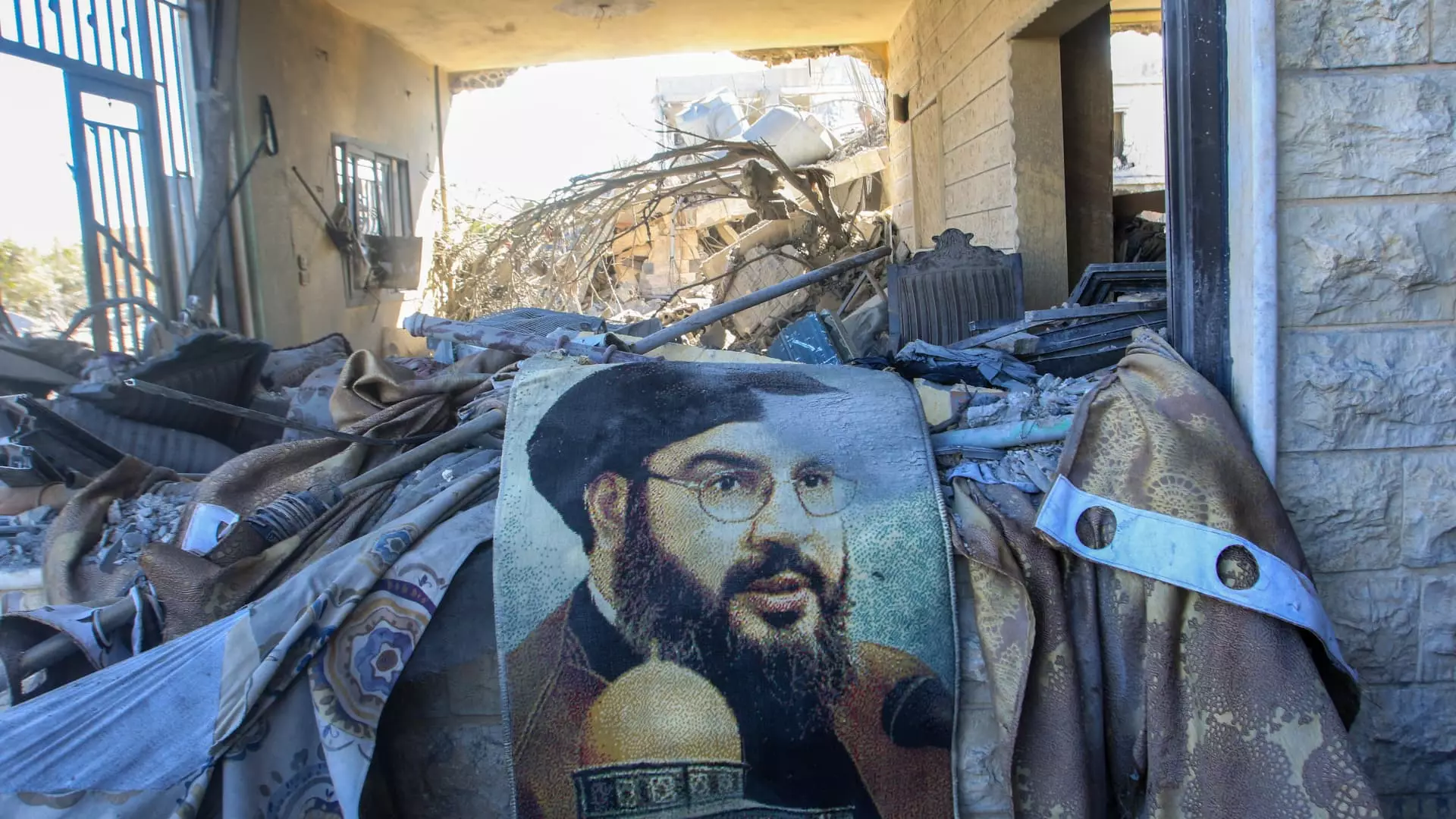The recent announcement from the Israeli Defense Forces (IDF) regarding the alleged death of Hassan Nasrallah, the leader of Hezbollah, suggests a pivotal shift in the landscape of Middle Eastern politics. For over 30 years, Nasrallah has been a key figure in Lebanon, influencing both domestic policies and regional dynamics. The complexity surrounding Hezbollah’s established power now raises important questions about the organization’s future, the political landscape in Lebanon, and the broader implications for Iran’s strategic presence in the region.
Hassan Nasrallah’s leadership has been synonymous with Hezbollah’s identity since his appointment in 1992. Under his guidance, the organization transformed into a formidable military and political force, defying Israel while garnering significant local and regional support. His death, if confirmed, represents not only a tactical victory for Israel but also a psychological blow to Hezbollah. Political analyst Ronnie Chatah argues that Nasrallah’s absence would deeply affect Hezbollah’s operational effectiveness and strategic decision-making. Without Nasrallah as its “central decision-maker,” the group may find it challenging to maintain its unified front and execute its complex strategies against both Israel and rival factions within Lebanon.
The vacuum left by Nasrallah’s departure could exacerbate existing fractures in Lebanon’s already fragile sectarian political system. Firas Maksad, a respected voice on Middle Eastern affairs, points out that Nasrallah wielded significant influence over Lebanon’s Shia community, a key player in the country’s intricate political machinery. His assassination raises crucial questions about the future role of Shia political and military entities within Lebanon, potentially igniting further polarization and unrest. With a weakened Hezbollah, rival factions may seek to assert themselves, leading to intensified political struggles and possibly destabilizing the fragile balance of power in Lebanon.
Israel’s assertion that Nasrallah’s death marks a major victory goes beyond the immediate operational impact. It reflects a broader strategy of targeting key figures in adversarial organizations to undermine their legitimacy and effectiveness. The announcement suggests that the IDF is prepared for the consequences of an escalated conflict, indicating that this could pave the way for a more aggressive approach towards Iran and its proxies, not just in Lebanon but across the region. The rhetoric surrounding the event is critical; it signals to both allies and enemies that Israel is resolute in its confrontations, setting the stage for possible future escalation.
In the wake of such a significant development, various scenarios may unfold. Should Hezbollah retain its organizational integrity, albeit weakened, it could lead to a covert restructuring aimed at compensating for the loss of its iconic leader. Conversely, it may fragment, leading to internal power struggles among potential successors. The unpredictable nature of this situation means that regional observers will need to monitor dissension within Hezbollah, as well as shifts in affiliations among other armed factions in Lebanon.
Furthermore, Nasrallah’s assassination could radicalize his supporters, leading them to rally behind extremist ideologies or engage in retaliatory acts against Israeli targets. Such a scenario raises the stakes for regional security, leaving the international community on alert for retaliatory actions or possible escalations from allied nations like Iran, which may push back against perceived threats from Israel.
While the killing of Hassan Nasrallah might seem like a tactical victory for Israel, its long-term implications may extend far beyond the immediate geopolitical landscape. The future of Hezbollah, Lebanon’s political order, and Iran’s involvement in the region could be dramatically reshaped. As Lebanon navigates a potentially tumultuous future, the international community must keep a close watch on developments, recognizing that the aftermath of Nasrallah’s death may provoke complex dynamics across the entire Levant, igniting new conflicts while reshaping old allegiances. In a region frequently characterized by volatility, this moment may herald both challenges and opportunities that could redefine power structures for years to come.


Leave a Reply